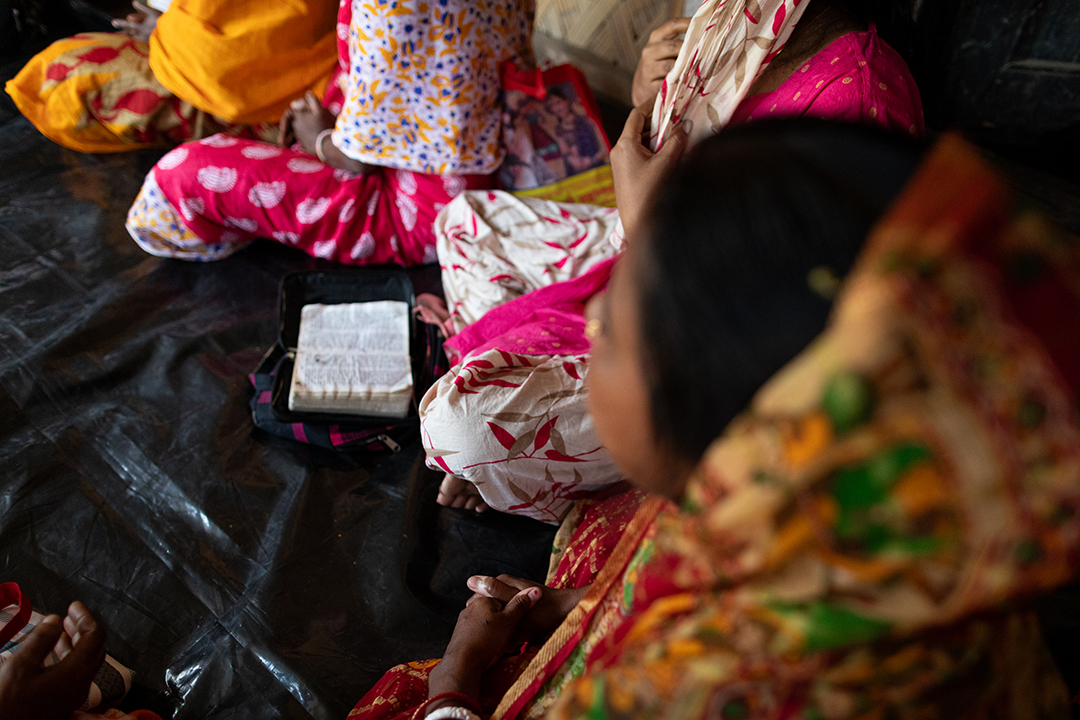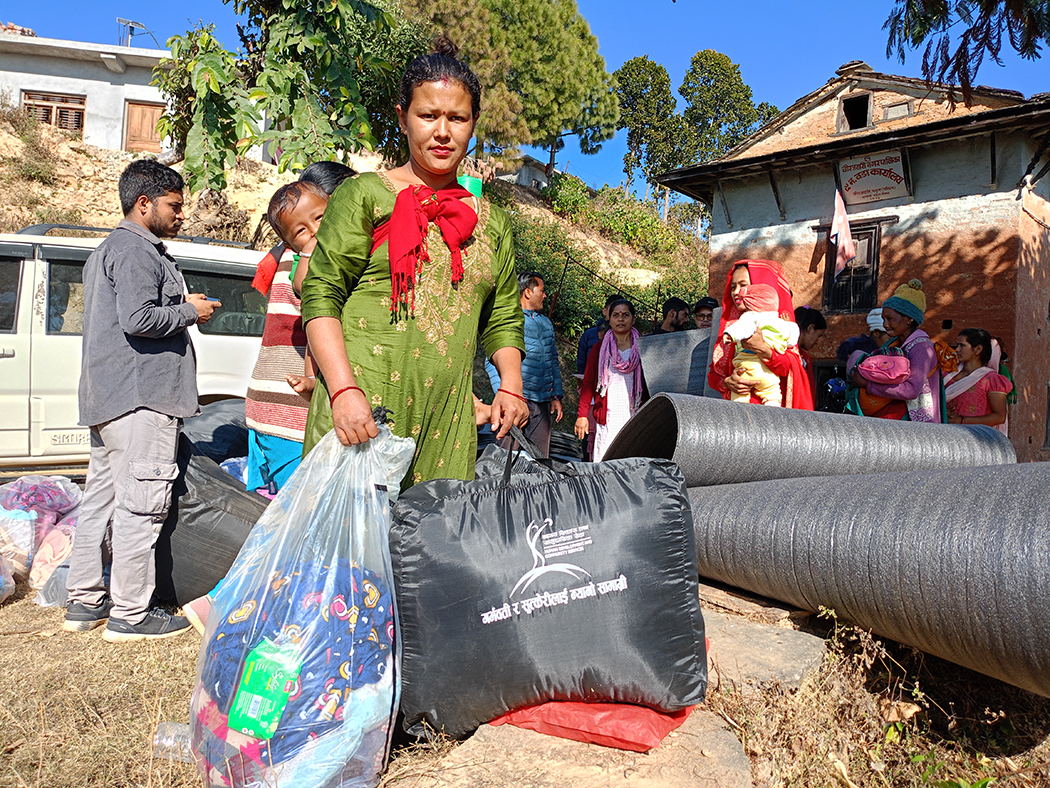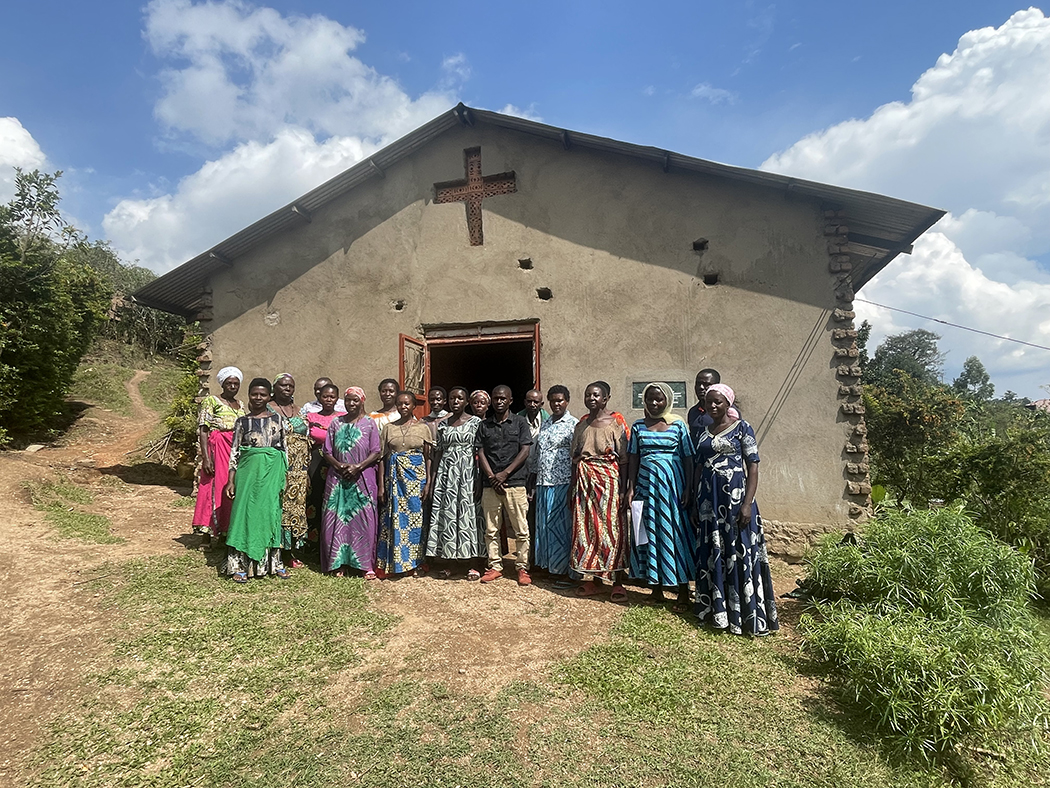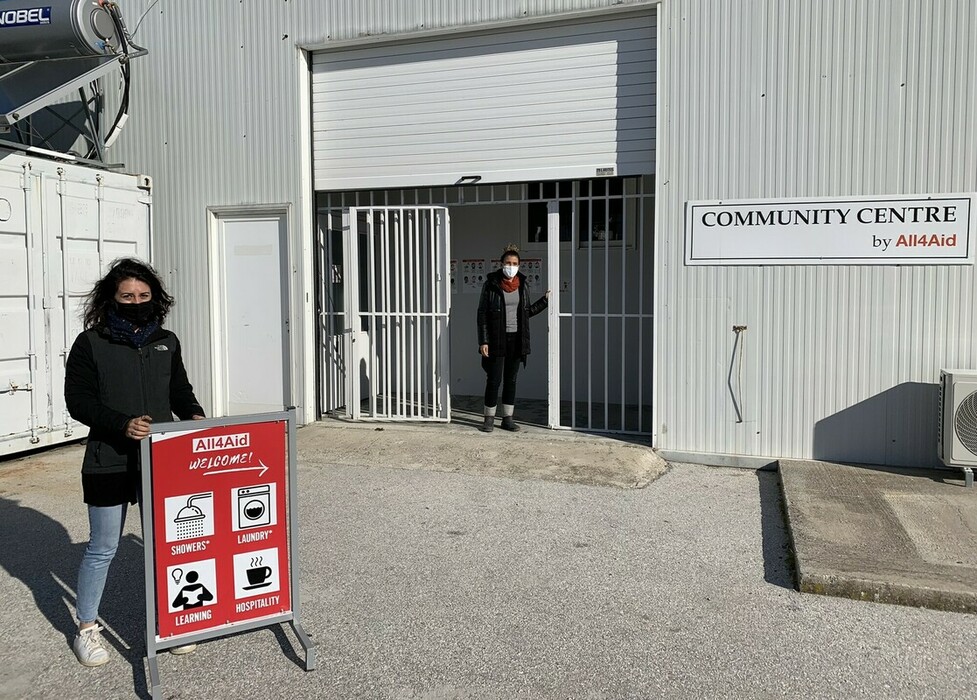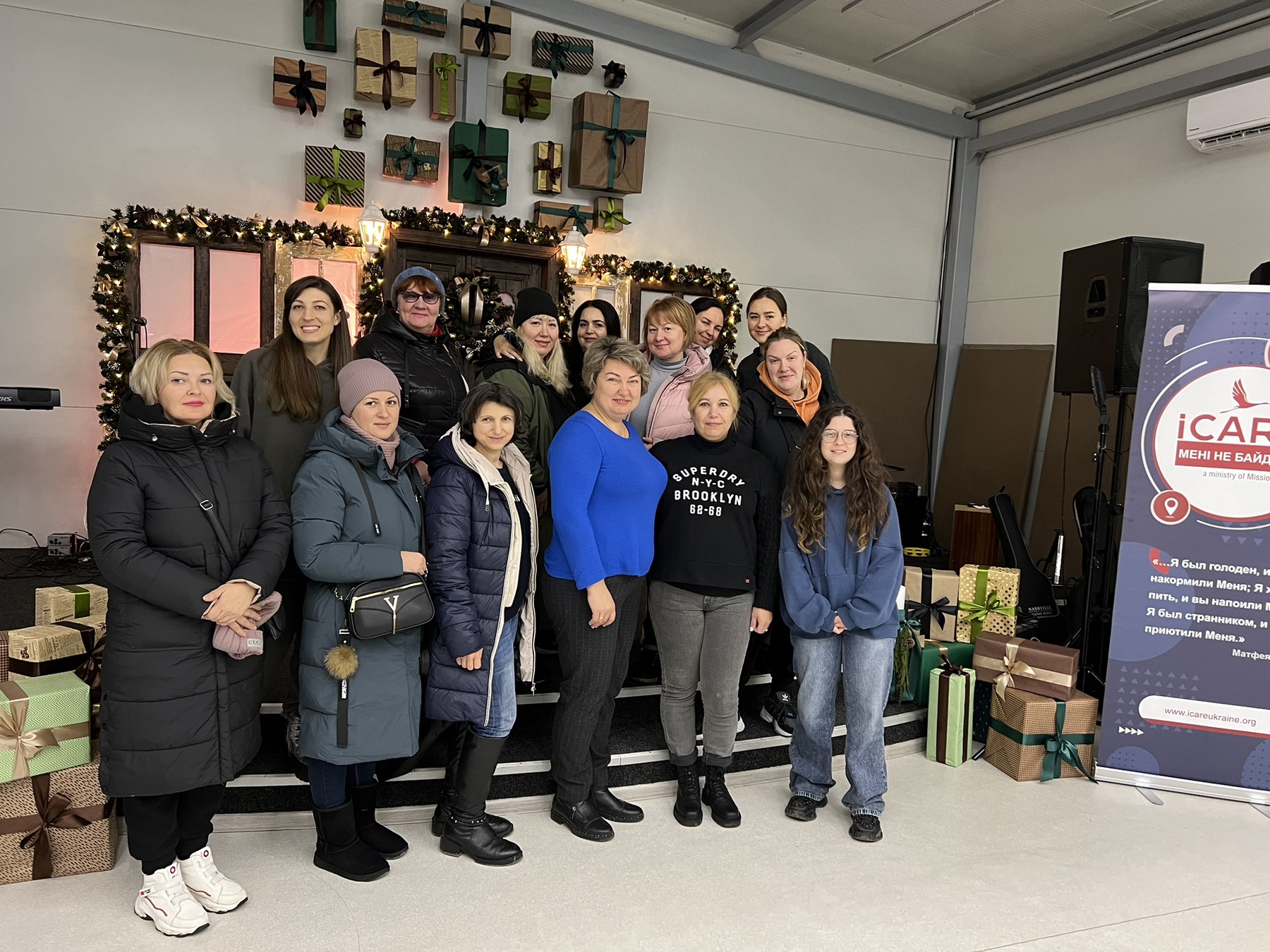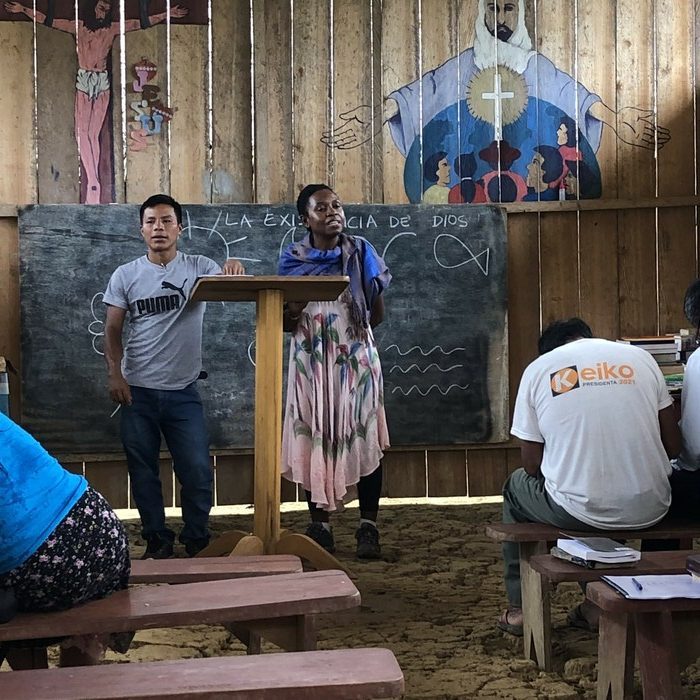A Nation in Exile
Threatened, bereaved, kidnapped: these are the stories of resilient Venezuelan settlers in Lima, Peru. They represent just some of the people caught up in the second largest refugee crisis in the world, a mass exodus of five million, living in exile across the globe.
Smiling faces welcome people into a church full of joyful chatter. It’s nine o’clock in the morning, and the mouth-watering aroma of cornflour patties reaches every corner, wafting its way over to children who are singing and dancing to Christmas tunes. These delicious fried buns, otherwise known as ‘arepas’, leak melted cheese and tasty ham. Breakfast is served.
Arepas are a taste of home and staple comfort food for the 100 Venezuelan asylum seekers here today at the Primera Iglesia Bautista de Lima (First Baptist Church of Lima) in Peru. Working in tandem with the Peruvian Baptist Convention (CEBP), BMS World Mission workers Daniel and Regiane Clark chose this centrally located church to host a social action event dedicated to supporting Venezuelan settlers.
Every room in this large church offers a free service, thanks to Regiane’s careful planning. In the central hall is an experienced doctor, with a volunteer dentist checking people’s teeth and teaching children good oral hygiene. Upstairs sit psychologists, expert lawyers and a physiotherapist, all offering advice and a listening ear. Outside, volunteers host children’s games and even a puppet show. Everyone has given up their Saturday to serve.
And what volunteers offer their Venezuelan guests today provides a striking contrast with what they’ve left behind. “We couldn’t find any food in the supermarkets,” says Carmen Mora, a mother of three who arrived in Lima in January 2019. “You needed to get up early to join the queue. You’d stay there until 6pm – and then the food would have run out.”
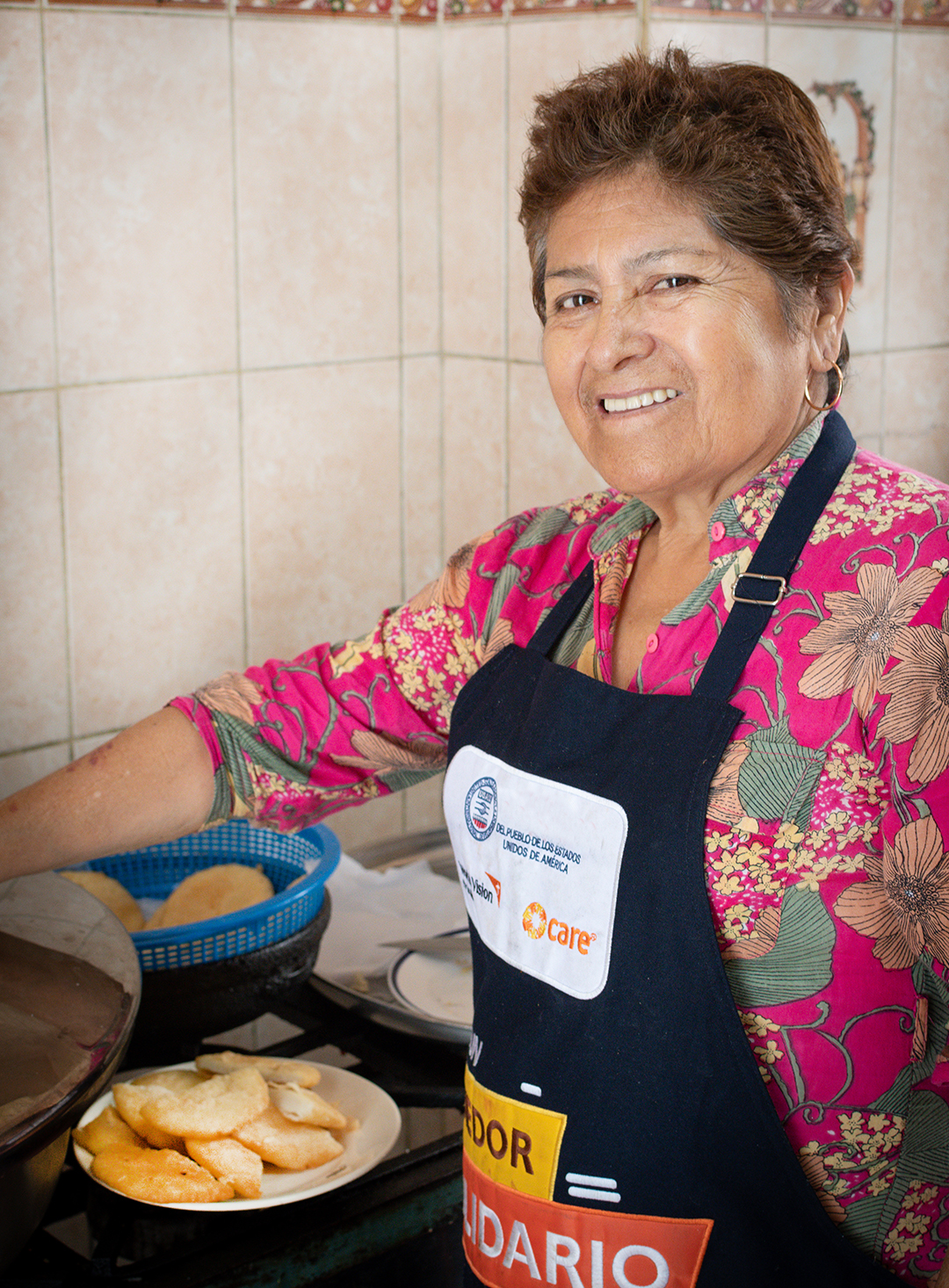
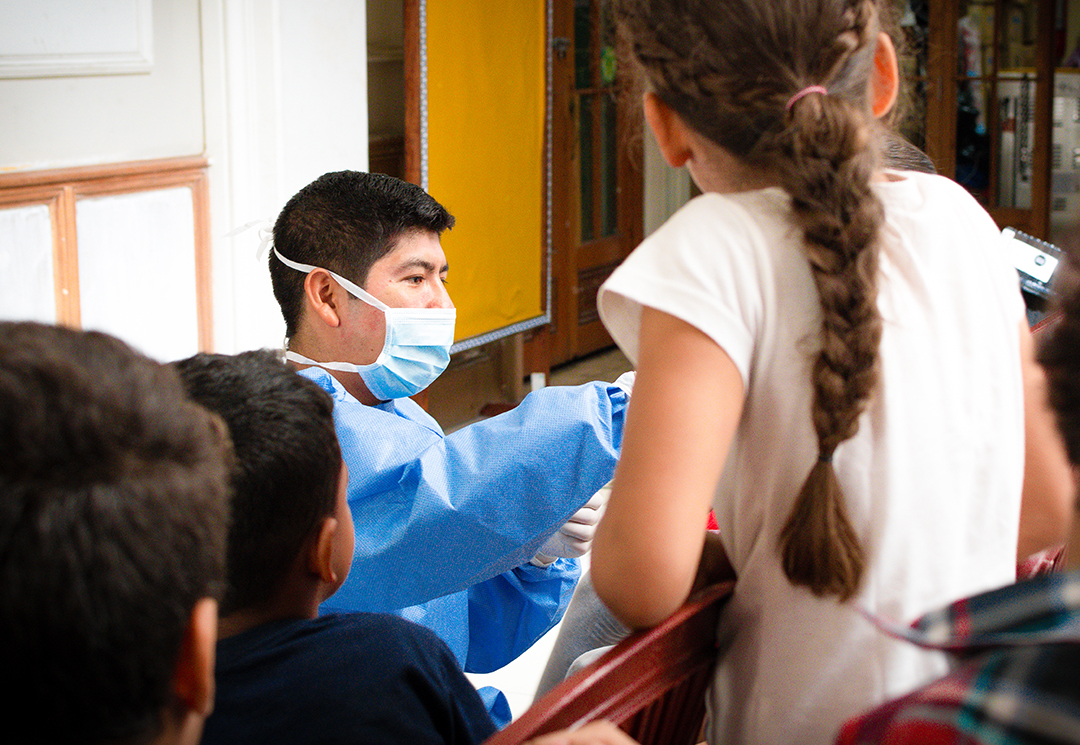
Carmen is one of the 800,000 Venezuelans who have fled political persecution and desperate poverty to arrive in Peru, a country now home to the second largest population of Venezuelan refugees after Colombia. “The idea was to come to Peru, earn a living to send back home and then return when the situation improved,” explains Daniel, who heads up a BMS-supported Baptist Seminary in Lima. “But now they have no hope of returning to Venezuela. Or there’s nothing for them to go back to.”
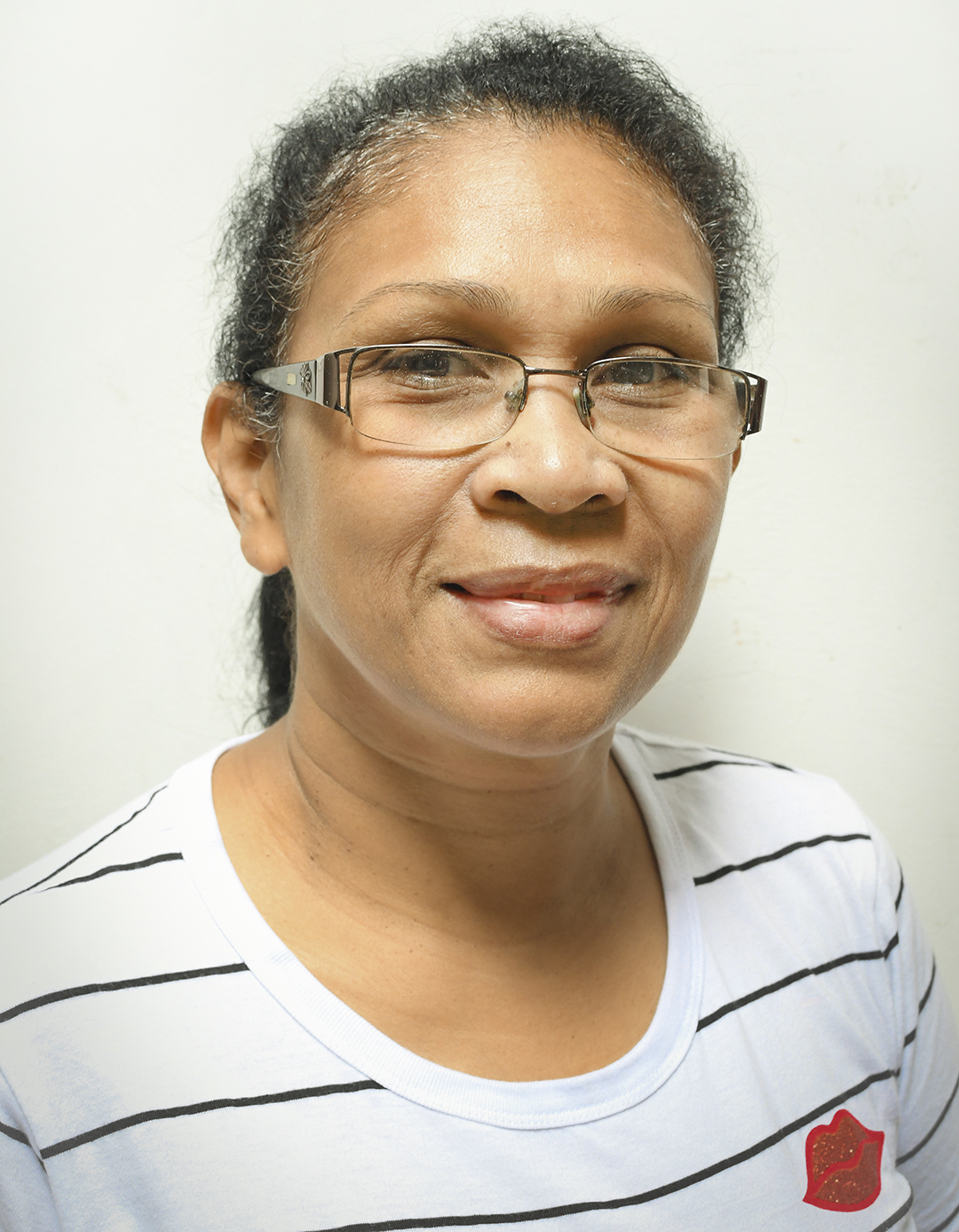
Carmen decided to leave when her home’s electricity, gas and water were cut off. She gathered her children and grandchildren to take a series of buses across Colombia and Ecuador to Peru. It took a terrifying and uncertain six days. Her eldest son and her husband remained, her son wanting to complete his studies and her husband committed to working at a company he’d been loyal to for 25 years. “But then my husband started to get ill,” Carmen explains. “They said he had a type of hepatitis. But it was pancreatic cancer. With the lack of treatment there – everything was so expensive – he died.” There was no way Carmen, a Venezuelan with an unresolved refugee status, could leave Peru to attend the funeral. “But my faith in the Lord has strengthened me,” Carmen says. “Please pray for my son who stayed in Venezuela, that God would console him.”
Today might be the closest to home that people like Carmen have felt in years. “When you’re with other Venezuelans – it makes me feel at peace,” says fellow settler Barbara Marquez. Christmas has turned her thoughts back to her homeland. “I’ve laughed all day, had a chance to celebrate. This has been a rollercoaster, but I thank God for your support. It brings the feeling of heaven just that little closer to earth.”
Barbara is just 26 years old. Her dream one day is to travel, to embark on a very different type of voyage to the one she felt forced to take across Latin America. “I left my mum, my dad, my home, my whole life,” she explains. “The journey was dangerous because of the street riots. And everything was so expensive.” Barbara and her husband sold everything they had. “You want to take everything and everyone with you. Even the dog!” She laughs a little, brushing away tears. “But it was the right decision.”

And it’s events like these that have helped Barbara feel her difficult choice was the right one. Her face lights up as her three-year-old daughter brings her a large bowl of food supplies. She picks up the items one by one to show the girls; arepas, cooking oil, gelatine, lentils, pasta and milk, each accompanied by an excited exclamation: “Look!” She also took her youngest daughter, Valeria, to the doctor at today’s event. Valeria struggles with a condition called hip dysplasia. “They say her hips are aligning,” Barbara says, delighted. “God is healing her!”
But leaving the past behind hasn’t been easy. “My eldest son was kidnapped,” says Diana*, visibly shaken as she recounts the events. “They only kept him for two hours, but after that he was traumatised.” As a university student, he’d been taken away in a car and interrogated by political investigators before they decided he was no threat and released him. Her son decided to leave for Peru immediately. Diana felt like she might never see him again.
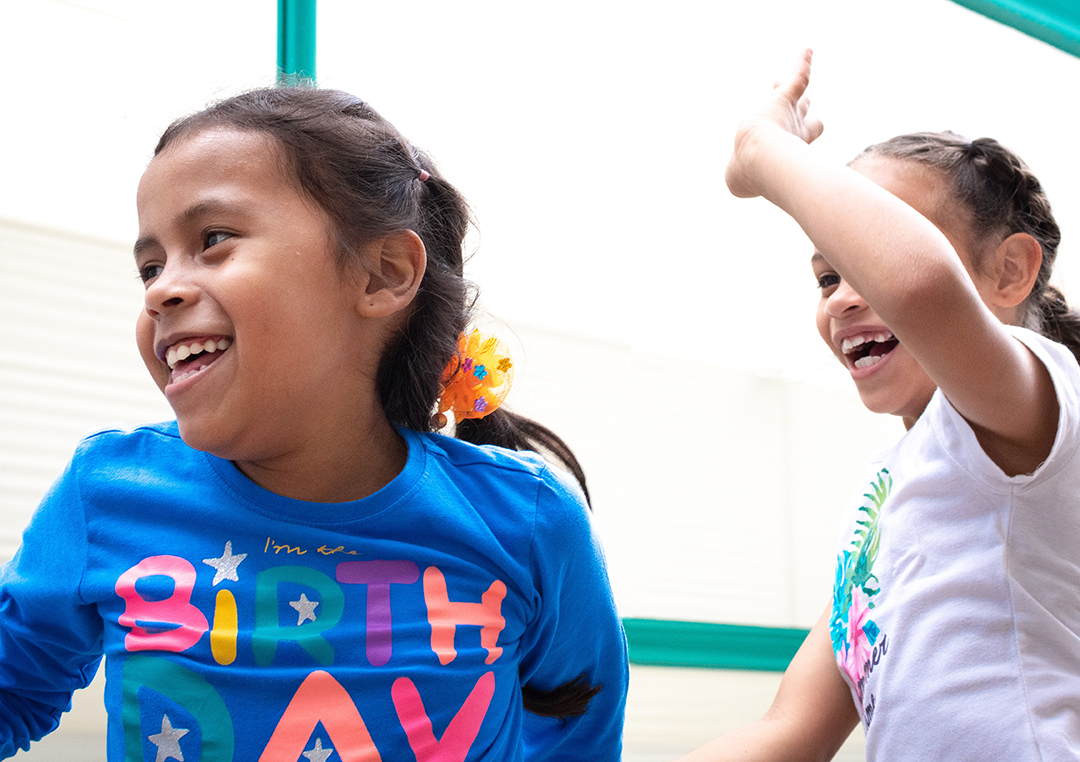
Diana and her husband gave up their electrical engineering business to sell food on the streets of the Peruvian capital so they could be reunited with their son. “As a business owner it’s so hard to start again at zero,” she explains. “Many of us have studied at university. But because we don’t have any documents, we can’t find proper work.” For legal employment, asylum seekers need to have refugee status, for which the waiting list is becoming increasingly long.
But hope is emerging. The day before the event, Brazil began a process to accept Venezuelan asylum seekers as refugees. The news left Robert, a professional Taekwondo coach who has been seeking political asylum for three years reeling with excitement. He hopes that soon neighbouring countries like Peru will begin the same process.
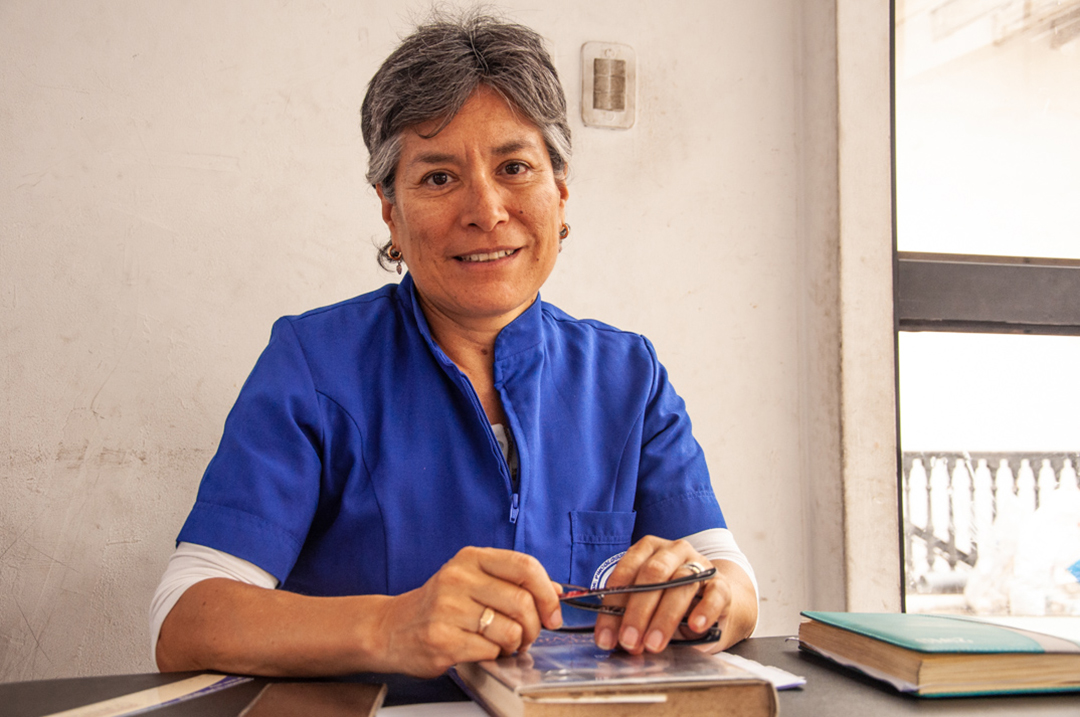
The gathering is the second of its kind, and Regiane and Daniel, along with the CEBP would not have been able to organise it without your support. “It’s with your help that we’ve been able to do campaigns like this. It’s incredible that total strangers help from so far away,” says Pastor Homero, President of the CEBP’s social action projects. “There is so much need here. It’s all done in the name of the Lord. It leads people to Christ.”
Supporting hundreds of thousands of refugees is a mountain of a task for Peruvians to tackle alone. “We don’t have all the resources here,” says Dr Dorcas Gambini, a psychologist who is volunteering her time to counsel those who need support today. But when God’s people work together, he makes seemingly immovable mountains move. “You heard us and offered us help. Together we are praying and doing,” says Dorcas.

Originally published in Engage, the BMS World Mission magazine.

